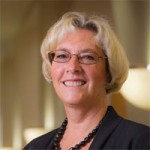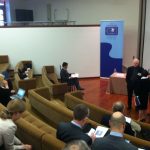This article is more than 5 years old.
Last week, I was lucky enough to attend an invitation-only summit on online learning, sponsored by Harvard, MIT, Stanford and the University of California at Berkeley. Drew Gilpin Faust, President of Harvard, and L. Rafael Reif, President of MIT, opened the symposium in person by speaking on a panel addressing how online learning is shaping the future of higher education on and off campus. This level of commitment to online learning in the most elite institutions of higher education is striking to me. The scope of the summit was broad – “challenges and opportunities higher education is facing in educating its residential students and a global community of learners” – so topics included MOOCs, blended learning, and “traditional” online courses and degree programs.
Harvard, MIT and Berkeley are founding members of edX and Stanford is a leading member of Coursera, so much of the conversation was around lessons learned with MOOCs. The popular press has largely left MOOCs behind but these leaders of higher ed continue to invest millions of dollars into the modality. Last year at our Future of Higher Education Symposium, I said that of the schools ranked above Wake Forest, only four had not joined the MOOC movement. I checked again, and it is now down to three: Washington University, St. Louis, UCLA and USC. Of course, as readers of this blog know, ZSRx is Wake Forest’s foray into the world of MOOCs and because our universe is so small, we are more like Harvard’s SPOCs (small, private, online courses) than MOOCs (massive, open, online courses). Only Kyle’s current RootsMOOC course with 3500 participants, might be considered a true MOOC. I found myself describing ZSRx to conference participants such as the Executive Director of HarvardX and the Vice Chancellor for Education at Oxford and they thought we were being strategic and savvy. It is our hope that the ZSRx course to come out in Spring 2016 on the history of Wake Forest will be a unifying learning experience for all Wake Foresters and heretofore skeptics will see the value of everyone learning together online.
But back to the Summit. Wednesday’s program was held at the American Academy of Arts and Sciences outside of Boston. I had never been in an auditorium where the seating was in couches!
In the opening panel with Faust, Reif, and US Under-Secretary of Education Ted Mitchell, moderator John Hockenberry asked whether MOOCs extend or dilute higher education. The answer was unanimously extend, with Faust speaking poignantly on the great hunger for learning across the globe and how it is incumbent on leading US universities to extend their reach to meet that need. In the process of doing so with MOOCs, much has been learned about teaching and learning and that knowledge is already enriching the residential experience on home campuses as well. Mitchell remarked that elite schools aside, market forces are already beginning to act on the business of higher education with a retreat in funding by the states and older students needing a more flexible and cost-effective model. Hockenberry asked the old bugaboo question about completion rates and Faust answered (correctly, in my opinion) that they are not troubling to her at all because they are completely different in intent and purpose from tuition-driven courses.
In the first plenary session, two dissimilar schools that pride themselves on engaged learning (Bryn Mawr and University of Michigan) took opposite directions with online learning. Neither chose wholly online degrees; Bryn Mawr chose blended learning and had the benefit of a Gates Foundation grant, and Michigan chose a $25 million engaged learning initiative that included an on-campus MOOC bringing together all segments on campus as well as many other programs that enhanced teaching with technology (and others that included no technology at all). Notably, the President of Bryn Mawr said the best thing she did was to tell faculty that she didn’t care if they tried the blended approach or not. This made it instantly popular! The plenary panelists agreed that what was really needed was a way to share digital materials. [Note: this was one of the ideas behind Unizin.]
A number of the breakout sessions were about blended learning. More than one person pointed out that technology was just the latest way to institute active learning in the classroom and the concept is not really new. Others said they are dropping high stakes testing (midterms and finals) and doing “chunk and test” instead, because students tend to rely on passive methods like lecture when studying for high stakes tests.
In a session about “spaces and places,” libraries were mentioned as space on campus that needed to be re-imagined (it is always amusing to hear people talk about libraries in this way, like we don’t already know this about ourselves). There was also talk of design of learning spaces, makerspaces, and the importance of spaces to encourage social learning from passive to active to productive to interactive.
In sessions about building community and improving engagement, I was happy to see talk of these topics in MOOCs as well as other forms of online learning. The desire for humans to be in the same space while learning was evidenced by the nearly spontaneous “meet up” phenomenon that has taken off in some MOOCs. Course organizers put up a Meet Up button without any further instruction, and people started self-organizing in major cities around the globe to get together while taking the same MOOC. This was seen as analogous to meeting up on the quad in residential environments.
I was very happy to attend this symposium and hope to go again next year. It will help us in our own online learning efforts at Wake Forest to keep current with these developments.


4 Comments on ‘Lynn attends Online Learning Summit’
“In the process of doing so with MOOCs, much has been learned about teaching and learning and that knowledge is already enriching the residential experience on home campuses as well.”
Amen. Thanks for the thorough write-up! So many interesting things happening, and so glad you were able to go!
It is interesting that those that rarely darken the doors of libraries seem to think we need to re-imagine ourselves or be re-imagined. I am re-imagining this library every day!
I wasn’t familiar with Unizin. It will be interesting to see how it develops.
I still want an auditorium with sofas!